"Trial and error" is how Ion Ionas describes his company's exports to the EU since 2014. Founded by his father in 2001, Ionex was among the first in Moldova to ship stone fruit and grapes westward. "The first year, we shipped ten truckloads but paid dearly for that learning experience. We, however, didn't give up, and by the second year, we even made a slight profit. By now, 95% of our volumes go to the European Union," Ion, the company's director, begins.
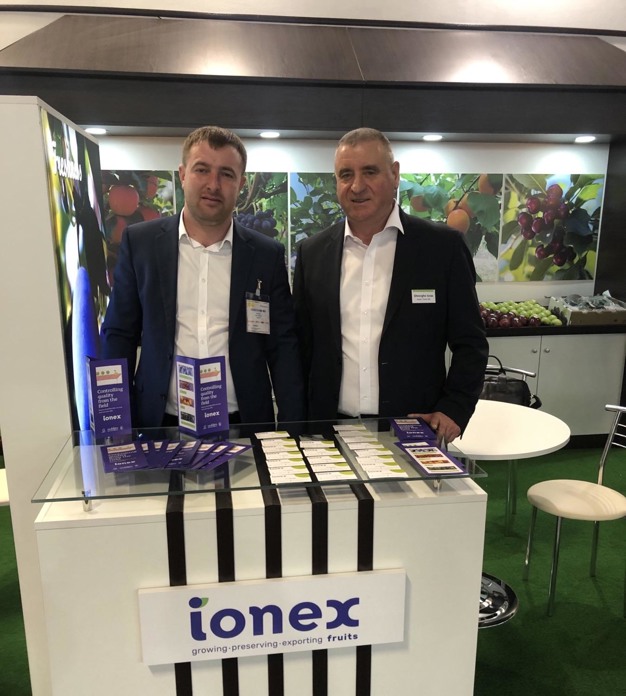
Ion Ionas and his father Gheorghe on an international fruit exhibition
He says Ionex is a pioneer in Moldova. "In the last century already, my father built cold rooms for the fruit he bought and traded. We were also among the first to install a sorting line and export to Germany and the United Kingdom. I joined the company in 2007, and three years later, our first orchard of some 20 hectares was a reality. We grow cherries, plums, and apricots." Ionex's plots are in Ungheni, a village near the Romanian border, while the packing facility is in Costesti, some 15 kilometers from Moldova's capital city of Chisinau.
Plums in one region, grapes in another
The company has 90+ hectares in Ungheni, 25 for grapes, 50 for plums, and the rest for apricots. "We had cherry trees at first, too, but have since uprooted them. I'm still looking for suitable varieties other than Regina and Kordia. Everyone has those. The grape vines will also be removed within a few years. In Ungheni, the emphasis will be almost entirely on plums, supplemented by apricots and possibly some cherries. And we'll establish vineyards - all of the Moldova variety and entirely on pergolas - within a few years in Costesti, where we're buying up land," says Ion.
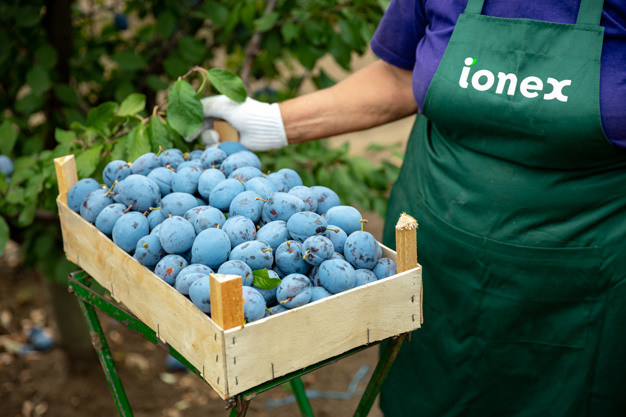
The climate in the slightly more southern Costesti is more suited to grape cultivation. Harvesting usually begins around September 20, two to three weeks earlier than in Ungheni. That reduces the risk of autumn showers and possibly a night of frost during picking. "In Costesti, three-quarters of the villagers have a hectare or two of grapes. We export some of those, but in our 900-ton cold storage, you'll only find our own-grown products. We also only ship our own fruit to the German retail sector."
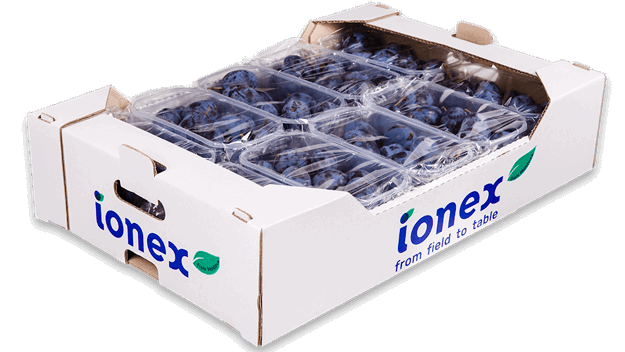
Flow pack line
Exporting to countries like Germany, France, the Netherlands, and the UK has several obvious requirements, such as certification and MRL compliance. Besides those, packaging also enjoys attention. Ionex supplies boxes of its own brand and has a flowpack line. "Every year, we go to the big fresh produce fairs, not only to talk to customers but also to make contacts with suppliers. For example, we get our punnets from Italy. This year, we hope to ship 20 truckloads of grapes in punnets to a German retailer," Ion explains.
Controlling the entire chain
In addition to the near-complete transition to plum cultivation in Ungheni and planting 30 hectares of grapes in Costesti, Ion wants to inaugurate a new, larger packing facility within two years. It must have more refrigeration space and a line that sorts for internal quality as well as size, color, and external defects. "The current line is versatile and flexible, but the need for staff is too great."
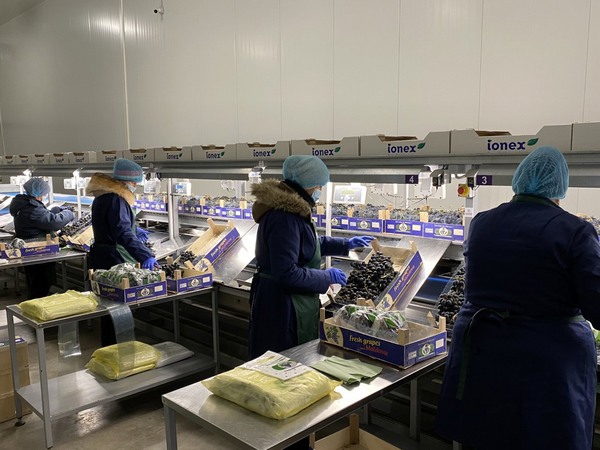
Sorting and packing of Moldova grapes
"I can now fill a truck daily with punnets or two with boxes, but I want to at least double that. The eventual goal is to not source any fruit from others and to have the entire chain in-house, from growing to storage and sorting to packaging. We outsource transportation to local logistics partners with whom we've worked for years. So, we even have some control over that," says Ionas.
Plums for vodka
Their packaging plant has almost year-round work for its permanent employees. When the grape season ends in mid-April, it is just a short wait until the cherry season starts in late May. After that, they pack apricots and then plums until December. "The plums last in cold storage until February, but after that we have no market for almost two months. This year, the first Centenar plums were picked as early as July 15, three weeks earlier than usual. To not waste a single plum, even the Class III product has a destination: vodka distilleries."
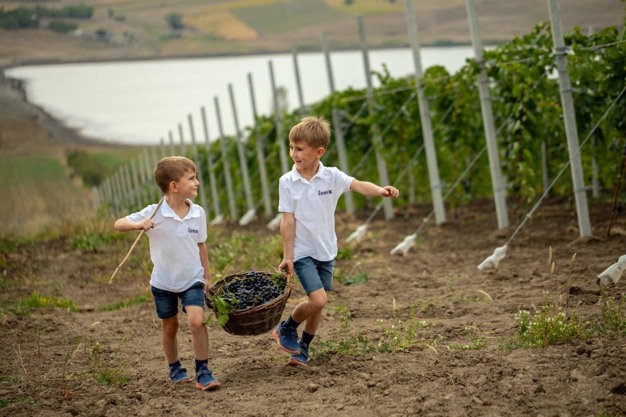
The third generation of the Ionas family
Incentives
Ion admits that finding qualified staff is challenging. "Especially to work in the orchards. Our sector doesn't have great profit margins, so we must carefully calculate wages. But because we still want to offer our workers a nice income, we implemented an incentives system this year. Instead of an hourly wage, they get paid per kilo," he explains.
The more effective workers get paid more; a win-win, according to Ion. "The harvesters earn more and we're sure all the fruit is picked on time. Because if, say, plum harvesting takes too long, the last volumes lose quality and have to go to processing. This year, we managed to pick 1,300 tons in ten days. The workers and we were very satisfied. Plus, they've already promised we can count on them next season too. Some come from as far as 100 km away, but we arrange transportation," he concludes.
Ionex Trans is GlobalGAP, GRASP, and SMETA certified and will be at the upcoming Fruit Attraction in Madrid. The company is at the joint Moldova Fruct sector organization's stand, 10D18.
For more information:
Ion Ionas (Director)
Ionex Trans Ltd
Costesti (Ialoveni) – Moldova
Mob: +373 699 611 88
[email protected]
https://ionex.md/en/
